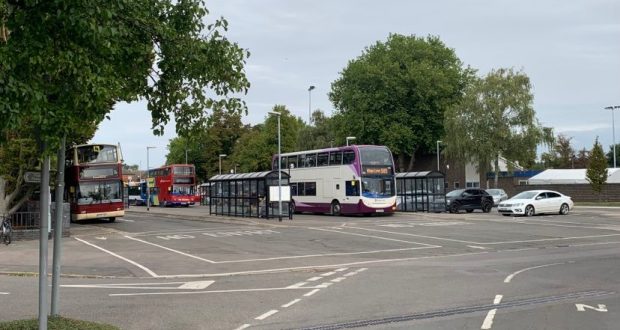Public transport failings in rural South Holland are creating a barrier to accessing education and vital services such as healthcare.
A report compiled by the South and East Lincolnshire Councils Partnership (SELCP) highlights issues and investigates potential solutions, including e-bikes and rural transport schemes.
The new scrutiny group is the first of its kind created under the SELCP umbrella, and has members from all three district councils – South Holland, Boston Borough and East Lindsey.
The partnership has no direct powers over public transport provision, but it is looking to work closely with organisations which do.
Lincolnshire County Council is the major provider, but the authority declined direct involvement in a series of meetings held by the joint scrutiny of public transport group.
There have been six meetings so far which have involved 13 representatives of a dozen different organisations and agencies.
Bus operator Brylaine, Boston College, Network Rail, and e-bike provider Zwings are among those who have taken part.
“I am looking forward to working collaboratively with councillors from across the partnership, and with our external partners and organisations who provide the services,” said chairman Chris Brewis.
“Our ambition is to be able to put forward innovative and impactful recommendations that will not only improve our public transport provision, but, through that, the daily experience for our residents, visitors, local businesses and economy,” he added.
Bus service operators are facing problems with slow recovery after the pandemic.
A 15p per mile subsidy from the Bus Service Operators Grant is not enough, and is awarded regardless of population density which penalises rural areas, the report says.
“Without significant increases in BSOG levels, the future provision of bus services across the SELCP remains a challenge. A typical bus service in Lincolnshire needs to earn £60 per hour to achieve commercial viability,” it adds.
Public bus services don’t serve large parts of the SELCP area where there are factories and packhouses, including Wardentree Lane in Pinchbeck.
“The picture exacerbates wider challenges around recruitment and retention within the food sector,” the report adds.
While large companies like Bakkavor lay on their own transport for staff, smaller companies can’t afford to do so. But there is hope for wider collaboration to facilitate solutions.
Current bus time tables do not cover working hours and there is an ambition by the county council to extend services, but it is dependent on a buy-in from operators and further funding.
Call Connect (on demand bus service) is subsidised by £2.5m each year by the county council and again there are hopes it could extend to run to 11pm – dependent on extra funding.
Availability of public transport also hits health services, both in terms of staff and for patients trying to get to appointments.
“Where community services are not available, there is evidence of the availability and cost of transport leading to patients not attending appointments and treatment,” the report says.
- Passenger numbers on trains have dropped by more than 40,000 since the pandemic, the SELCP report says.
In 2019-20 176,342 passengers used Spalding station but in 2021-22 the figure was 134,834.
But there is an opportunity for the SELCP to lobby for this area although lower population density often weakens any economic case for investment.
The partnership is also looking at the potential of developing ‘greenways’ for cycle and foot connections away from traffic. The use of e-bikes could be a viable alternative as 70 per cent of car use is short distances.
There is “opportunity for e-bike provision in Boston, Spalding/Pinchbeck and Skegness,” the report says.
The outcomes of the focus on public transport will include new policies and approaches with a stronger ability to lobby for change and investment, said a statement from South Holland District Council.
 The Voice of Spalding and South Holland
The Voice of Spalding and South Holland



